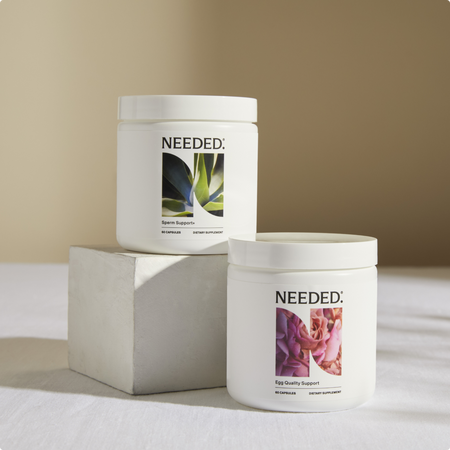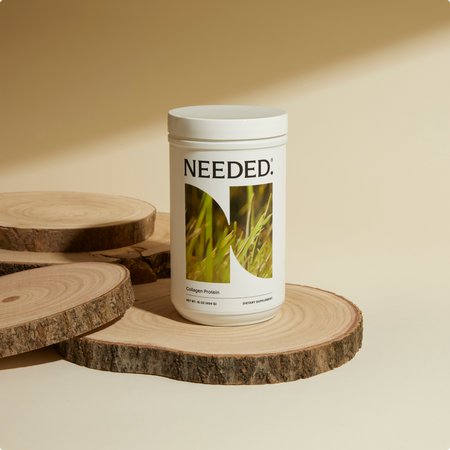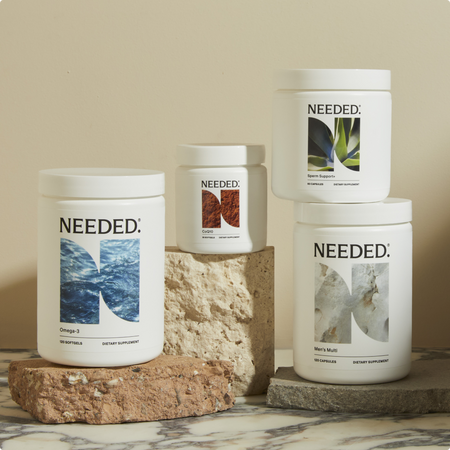Have a Craving for Ice While Pregnant? What it Means & When to be Concerned
If you've found yourself constantly reaching for ice cubes during pregnancy, don’t worry, you’re not an anomaly. It’s one of several “weird” pregnancy cravings, and it’s mostly harmless. So why does it happen?
For some, it’s a simple way to cool down, relieve nausea, or stay hydrated. For others, especially when the craving is persistent and compulsive, it could be a sign of a condition called pagophagia, which is often linked to iron-deficiency anemia.
In this article, we’ll explore everything you need to know about craving ice during pregnancy. We’ll discuss what causes these cravings, the potential health risks involved, and when it might be time to speak with your healthcare provider.
Is It Normal to Crave Ice During Pregnancy?
Yes! Known clinically as pagophagia, this behavior falls under a broader condition called pica, where individuals crave non‑food items.
What is Pica?
Pica is a disorder characterized by the impulse to eat non-food items, such as clay, ice or even paper. Pica is mainly caused by an underlying medical issue, such as a depletion or iron deficiency anemia, and primarily occurs in young children and pregnant women. Most cases are mild, and the most harmful side effects include stomachaches, fatigue, or indigestion from eating non-food materials.
How Common Are Ice Cravings?
Studies reveal that around 20–30% of pregnant women worldwide report some form of pica, with pagophagia (ice-craving) being one of the most frequent. In one survey of 200 pregnant women, 53.7% reported ice cravings.
Why Do Pregnant Women Crave Ice?
If you’re pregnant and constantly craving ice, it could be more than just wanting something cold to snack on. You could have a nutrient deficiency or be dealing with some stress or anxiety. Identifying the root cause can help alleviate your concerns and ensure you receive the necessary support and care.
Iron-Deficiency Anemia
One of the most common medical explanations for craving ice while pregnant is iron-deficiency anemia. This condition occurs when your body lacks sufficient iron to produce enough healthy red blood cells, resulting in difficulties transporting oxygen throughout the body.
Iron deficiency, the leading cause of anemia, is a common condition that affects 39% of women and 50% of pregnant women in the US.
Iron deficiency can cause several pregnancy complications, including:
- Increased risk of preterm labor
- Postpartum hemorrhaging
- Low birth weight
Dehydration and Morning Sickness
Pregnant women require adequate hydration to support both themselves and the growing fetus. Ice provides a slow, refreshing source of water, making it easier to stay hydrated without having to gulp down large amounts of fluid, especially when you’re feeling queasy.
If you’re dealing with morning sickness, sometimes drinking water can trigger nausea. Ice can be a great alternative, and some women find that flavored ice or frozen fruit cubes make for a hydrating and delicious snack.
Oral Comfort and Sensory Relief
Some women report feeling increased oral discomfort, inflammation, or sensitivity during pregnancy. The texture and temperature of ice can provide a soothing sensory experience, offering temporary relief for a dry or irritated mouth.
Risks of Eating Too Much Ice During Pregnancy
Eating ice is generally harmless, so you don’t have to worry too much about getting your daily frozen treat. However, there are a few potential issues you should be aware of:
- Dental damage: Chewing on hard ice can weaken or wear down the enamel on your teeth, possibly leading to cavities. Pregnancy can already exacerbate tooth decay, so pay close attention to your oral health.
- Nutrient Loss: Ice is harmless, but it also has zero nutritional value (beyond hydration), so you may miss out on essential nutrients if you’re not watching your diet.
- Underlying Health Concerns: If your ice cravings are linked to an underlying issue like anemia, it can worsen as time goes on.
How to Address and Manage Ice Cravings
An ice craving by itself isn’t a problem, but you should ensure that you figure out the root cause in case it’s something that can impact you and your baby’s health.
When to See Your Healthcare Provider
If you experience fatigue, dizziness, shortness of breath, and pale skin, along with an intense craving for ice, that could be a sign of iron-deficient anemia. Your healthcare provider can conduct one of several tests to confirm, such as a ferritin test, CBC, or Serum test. Each of these measures how much iron you have and how efficiently it’s working in your body.
Treating Iron Deficiency
If you suspect low iron is driving your ice cravings, it’s important to confirm with your healthcare provider. In the meantime, you can boost your iron levels through a few daily practices:
- Eat more iron-rich foods: Focus on options like lean red meat, beans, spinach, and iron-fortified cereals.
- Pair with vitamin C: Consuming vitamin C-rich foods, such as oranges or strawberries, alongside iron-rich sources can help your body absorb more iron.
- Cook with cast iron pots and pans: Preparing meals in cast iron pans can naturally increase the iron content of your food.
- Consider supplements: A high-quality iron supplement, like Needed’s Prenatal Iron, can help replenish your stores. Start with a low dose to minimize side effects like nausea or constipation, and gradually increase as needed.
Regular check-ins with your provider can ensure your levels stay on track and prevent future deficiencies.
H3: Healthier Alternatives to Hard Ice
Hard ice can be tough on your teeth, so consider alternating with smaller ice pellets, crushed ice or even slushies or Italian ices. Just be mindful of the juice or sugar content.
Frequently Asked Questions: Pica During Pregnancy
Is craving ice during pregnancy always a sign of anemia?
No, sometimes it can be due to dehydration, or you may simply be too hot and need to cool down. If your ice cravings are accompanied by fatigue, a feeling of weakness, cold hands and feet, or brittle fingernails, it may be a sign of iron deficiency or anemia.
Can eating ice harm my baby?
No, ice is just frozen water, so it won’t harm your baby.
What should I do if I can’t stop chewing ice?
First, address any underlying causes, and then try to wean yourself off ice with slushies or upping your water intake.
Can ice cravings continue after pregnancy?
Yes, many people crave ice or other non-food items even when they aren’t pregnant.
Are there safer ways to satisfy the craving without damaging teeth?
Yes, try smaller ice pellets, crushed ice or slushies (low- or no-sugar varieties are the healthiest).
Listen to Your Body and Seek Support
Craving ice during pregnancy might seem like just another quirky pregnancy symptom, but it’s worth paying attention to, especially if your cravings are sudden or intense. Your body has unique ways of signaling when something is off, and sometimes those signals show up in the form of unexpected habits like chewing ice.
If your cravings feel compulsive or are paired with symptoms like fatigue or dizziness, don’t hesitate to bring them up with your healthcare provider. You can manage most pregnancy cravings by maintaining a balanced diet, staying hydrated, and getting regular check-ups, which are key to ensuring both your health and your baby's well-being.















